- About
- Mission Statement
Education. Evidence. Regrowth.
- Education.
Prioritize knowledge. Make better choices.
- Evidence.
Sort good studies from the bad.
- Regrowth.
Get bigger hair gains.
Team MembersPhD's, resarchers, & consumer advocates.
- Rob English
Founder, researcher, & consumer advocate
- Research Team
Our team of PhD’s, researchers, & more
Editorial PolicyDiscover how we conduct our research.
ContactHave questions? Contact us.
Before-Afters- Transformation Photos
Our library of before-after photos.
- — Jenna, 31, U.S.A.
I have attached my before and afters of my progress since joining this group...
- — Tom, 30, U.K.
I’m convinced I’ve recovered to probably the hairline I had 3 years ago. Super stoked…
- — Rabih, 30’s, U.S.A.
My friends actually told me, “Your hairline improved. Your hair looks thicker...
- — RDB, 35, New York, U.S.A.
I also feel my hair has a different texture to it now…
- — Aayush, 20’s, Boston, MA
Firstly thank you for your work in this field. I am immensely grateful that...
- — Ben M., U.S.A
I just wanted to thank you for all your research, for introducing me to this method...
- — Raul, 50, Spain
To be honest I am having fun with all this and I still don’t know how much...
- — Lisa, 52, U.S.
I see a massive amount of regrowth that is all less than about 8 cm long...
Client Testimonials150+ member experiences.
 Scroll DownPopular Treatments
Scroll DownPopular Treatments- Treatments
Popular treatments. But do they work?
- Finasteride
- Oral
- Topical
- Dutasteride
- Oral
- Topical
- Mesotherapy
- Minoxidil
- Oral
- Topical
- Ketoconazole
- Shampoo
- Topical
- Low-Level Laser Therapy
- Therapy
- Microneedling
- Therapy
- Platelet-Rich Plasma Therapy (PRP)
- Therapy
- Scalp Massages
- Therapy
More
IngredientsTop-selling ingredients, quantified.
- Saw Palmetto
- Redensyl
- Melatonin
- Caffeine
- Biotin
- Rosemary Oil
- Lilac Stem Cells
- Hydrolyzed Wheat Protein
- Sodium Lauryl Sulfate
More
ProductsThe truth about hair loss "best sellers".
- Minoxidil Tablets
Xyon Health
- Finasteride
Strut Health
- Hair Growth Supplements
Happy Head
- REVITA Tablets for Hair Growth Support
DS Laboratories
- FoliGROWTH Ultimate Hair Neutraceutical
Advanced Trichology
- Enhance Hair Density Serum
Fully Vital
- Topical Finasteride and Minoxidil
Xyon Health
- HairOmega Foaming Hair Growth Serum
DrFormulas
- Bio-Cleansing Shampoo
Revivogen MD
more
Key MetricsStandardized rubrics to evaluate all treatments.
- Evidence Quality
Is this treatment well studied?
- Regrowth Potential
How much regrowth can you expect?
- Long-Term Viability
Is this treatment safe & sustainable?
Free Research- Free Resources
Apps, tools, guides, freebies, & more.
- Topical Finasteride Calculator
- Interactive Guide: What Causes Hair Loss?
- Free Guide: Standardized Scalp Massages
- 7-Day Hair Loss Email Course
- Ingredients Database
- Interactive Guide: Hair Loss Disorders
- Treatment Guides
- Product Lab Tests: Purity & Potency
- Evidence Quality Masterclass
More
Articles100+ free articles.
-
Cannabidiol (CBD) Increases Hair Counts By 246%? Not So Fast.
-
Creatine: Does It Worsen Hair Loss? It Depends On The Hair Loss Type.
-
Can Progesterone Improve Hair Regrowth?
-
CRABP2: Can This Gene Predict Regrowth From Retinoids?
-
BTD: Can This Gene Predict Regrowth From Biotin?
-
COL1A1: Can This Gene Predict Regrowth From Collagen Support?
-
2dDR For Hair Loss: What Do We Know So Far About This Sugar?
-
CYP19A1: Can This Gene Predict Regrowth From Hormone Therapy?
PublicationsOur team’s peer-reviewed studies.
- Microneedling and Its Use in Hair Loss Disorders: A Systematic Review
- Use of Botulinum Toxin for Androgenic Alopecia: A Systematic Review
- Conflicting Reports Regarding the Histopathological Features of Androgenic Alopecia
- Self-Assessments of Standardized Scalp Massages for Androgenic Alopecia: Survey Results
- A Hypothetical Pathogenesis Model For Androgenic Alopecia:Clarifying The Dihydrotestosterone Paradox And Rate-Limiting Recovery Factors
Menu- AboutAbout
- Mission Statement
Education. Evidence. Regrowth.
- Team Members
PhD's, resarchers, & consumer advocates.
- Editorial Policy
Discover how we conduct our research.
- Contact
Have questions? Contact us.
- Before-Afters
ArticlesHormonal Birth Control & Hair Loss: A Review Of The Evidence
First Published Sep 13 2019Last Updated Oct 29 2024Pharmaceutical Researched & Written By:Perfect Hair Health Team
Researched & Written By:Perfect Hair Health Team Reviewed By:Rob English, Medical Editor
Reviewed By:Rob English, Medical Editor
Want help with your hair regrowth journey?
Get personalized support, product recommendations, video calls, and more from our researchers, trichologists, and PhD's dedicated to getting you the best possible outcomes.
Learn MoreArticle Summary
Some hormonal birth control may (1) increase temporary hair loss when starting/stopping treatment, and (2) accelerate hair loss in women at-risk of female pattern hair loss. But not all birth control carries the same risk. Read on to educate yourself on which options might be better for your unique biology, and why.
Full Article
Can “the pill” cause hair loss in women?
Hormonal birth control is incredibly effective at achieving its intended effect: to prevent pregnancy. However, many online anecdotes suggest that birth control might also harbor unintended consequences: namely, hair loss.
So, do these anecdotes align with reality? Can hormonal contraceptives actually cause hair loss? Are there factors that increase (and decrease) this risk? And if so, what can we do to minimize our likelihood of hair thinning?
This in-depth article uncovers the evidence (and answers).
Key Takeaways
Some (but not all) forms of birth control may contribute to hair loss.
- Some forms of birth control may exacerbate pattern hair loss (androgenic alopecia)
- Certain oral contraceptives may cause temporary hair shedding – similar to what’s observed at the beginning of pregnancy.
- Certain oral contraceptives, when stopped, may lead to temporary hair shedding – similar to “postpartum molting” observed after pregnancy.
These effects are likely due to birth control’s impacts on progesterone, testosterone, and estrogen levels.
Some hormonal birth control is also linked to nutrient depletion and increased inflammatory biomarkers – which may increase the risk of hair loss for certain groups of women. However, research here is still ongoing.
Women with a familial history of female pattern hair loss (androgenic alopecia) should avoid birth control pills with a higher androgen index. Instead, they may want to try options like the NuvaRing®, the Depo-Provera shot, low-androgen implants, or low-androgen combination oral contraceptives (i.e., “the pill”).
Women concerned with all forms of hormonal birth control may want to seek alternative contraceptive options – like condoms or natural family planning (both of which have their own shortcomings, but aren’t connected to hair loss).
The rest of this guide dives deeper into the science behind hormonal birth control, its connection to hair loss, and which options are (and aren’t) as concerning for hair.
Note: we strive to provide content that is error-free and medically accurate. At the same time, it’s unrealistic to get things 100% right, 100% of the time. This is because evidence, opinions, and recommendations are constantly evolving in light of new research. Consider this guide a starting point for your own research, and not medical advice. As always, consult your physician before acting on any information from any resource – including this site.
What is hormonal birth control?
Hormonal birth control is a pharmaceutical intervention designed to prevent pregnancy. It works by suppressing ovulation.
If we were to grossly oversimplify things, female hormonal birth control changes hormone levels to better match what’s observed during pregnancy. This “tricks” the body into thinking it’s already pregnant, so that ovulation stops.
Hair loss & birth control: is there a connection?
Yes and no. The answer varies based on (1) the type of hair loss, and (2) the type of birth control.
For reference, nearly all forms of hormonal birth control use synthetic progesterone and/or estrogens to regulate menstruation and ovulation. Here are some examples:
- Intrauterine device (IUD): A progesterone-only form of hormonal birth control. It is a T-shaped device made of polyethylene that slowly releases progesterone into the uterus to prevent pregnancy.
- Implant: Another progesterone-only form of hormonal birth control placed under the skin of the arm. It is an ethylene device that releases progesterone progressively into the bloodstream directly.
- Depo-Provera Shot: The hormonal birth control shot is another progesterone-only option, administered directly to the bloodstream. It involves quarterly appointments for continued protection.
- Combined oral contraceptive pill (COCs): The combined oral contraceptive pill is a combination of both ethinyl estradiol (estrogen) and various forms of progesterone. Pill administration is every day, with each pill-pack consisting of 28 daily doses. It is administered orally where it is absorbed into the bloodstream via the gut lining.
- Mini-pill: The mini-pill is a progesterone-only hormonal birth control pill. Like COCs, the mini-pill is also absorbed via the digestive system.
- NuvaRing®: A vaginal ring that contains both ethinyl estradiol and progesterone. It is inserted once a month and progressively secretes these hormones to prevent pregnancy.
When it comes to hair loss, newer forms of birth control – i.e., the NuvaRing®, Depo-Provera Shot, and IUD’s – aren’t as well-studied as oral contraceptives. This is because oral contraceptives (i.e., “the pill”) have been around since the 1960’s, whereas newer birth control formulations have really only been on-the-market for the past 10-20 years.
Having said that, nearly all hormonal birth control use progesterone and/or estrogens to block ovulation. Consequently, physicians often apply data on oral contraceptives and hair loss (from the 1970’s) to generalize what we can expect for all hormonal birth control – both new and old.
So, what does the data have to say? The answers might surprise you.
Oral contraceptives
This 1973 literature review catalogued all clinical trials on oral contraceptives and their observed effects of hair health.
Across dozens of studies, the authors found three instances where oral contraceptives can contribute to hair thinning. One instance relates to pattern hair loss; two instances relate to temporary hair shedding.
Pattern hair loss (after starting)
Many oral contraceptives contain synthetic progesterone to help stop ovulation. Interestingly, synthetic progesterone is made from the male hormone testosterone.
Progesterone

Unfortunately, some testosterone-derived synthetic progestins still maintain a certain degree of androgenic (male hormone) activity… which means that in addition to stopping ovulation, they may increase a woman’s testosterone levels.
The male hormone dihydrotestosterone (DHT) is made from testosterone, and it’s believed to be the primary hormone involved in pattern hair loss. So, for women who have pattern hair loss (or a familial history of it), progesterone-containing contraceptives with a “high androgen index” can exacerbate or accelerate this condition.
What can we do about this?
According to that 1973 review, women at-risk of female pattern hair loss should avoid oral contraceptives made from progestins that have a “high androgenic index”. This includes progestins like:
- Levonorgestrel
- Dl-norgestrel
- Norethindrone
- Norgestrel
So, if you’re at-risk of female AGA, you may want to avoid the following hormonal birth control:
- IUD/vaginal rigs: The IUD contains levonorgestrel as its progesterone and may have especially androgenic effects in the absence of estrogen.
- COCs containing the most androgenic progestins.
- The mini-pill: The mini-pill contains norethindrone, an androgenic progestin, as its active ingredient. There are no other variations of the mini-pill.
But even if you’re not at-risk of female pattern hair loss, you might still see fluctuations to you hair health when starting (and stopping) oral contraceptives. Here’s why.
Hair shedding (after starting)
In early pregnancy, fluctuations in progesterone and estrogen levels (alongside increases to stress) can lead to temporary hair shedding. Oral contraceptives help to emulate the hormonal profile of a pregnant woman.
As such, it’s no surprise that one study found that 50% of women using them also experienced temporary hair shedding in the first few months (that usually resolved within six months).
Hair shedding (after quitting)
By mid-pregnancy, many women actually see increased hair density. This is believed to be due to a steady rise in estrogen levels, which may confer protective effects on hair and elongate the growth phase of the hair cycle. Post-pregnancy, estrogen levels drop, these protective effects dissipate, and, consequently, many women experience more hair shedding.
The same is true after quitting birth control: estrogen levels drop, a female experiences oestrogen withdrawal, and Hair typically recovers within 3-6 months.
What can we do about this?
According to that 1973 review, we shouldn’t worry about temporary shedding from “the pill” – because this shedding doesn’t present significantly at the population-level.
“The incidence of diffuse alopecia in women between 1952 and 1971 has remained unchanged although [oral contraceptive] use has increased. This suggests the effect of [oral contraceptives] on alopecia is insignificant.”
In some cases, that review even argues that birth control can improve hair growth… with one study showing that 22% of females on oral contraceptives saw increases to hair density.
Again, this aligns with observations during mid-to-late pregnancy when the protective effects of estrogen kick in, the hair growth cycle elongates, and hair counts increase (temporarily).
As such, the authors concluded that:
“Such findings suggest that when the pill produces any clinically significant effect on hair cycles it is likely to be a favourable one.”
Summary (so far)
According to a widely cited resource on birth control and hair loss (from 1973)…
- Most women should not be concerned about hair loss from oral contraceptives.
- Oral contraceptives with a high androgen index may exacerbate pattern hair loss (androgenic alopecia). For these women, low androgen index birth control is recommended (if any birth control is necessary).
- Upon starting oral contraceptives, 50% of women experience slight increases to hair shedding, which normalizes within six months.
- Upon stopping oral contraceptives, some women experience hair shedding as estrogen levels normalize (similar to postpartum molting). This is temporary.
- In 22% of women, oral contraceptives actually increase hair density.
Have expert opinions evolved since the 1970’s?
To our knowledge, not really.
Nearly forty years after that literature review was published, these conclusions still stand. That means if you visit a doctor with questions about birth control, you’ll likely hear:
- “If you’re at risk of female pattern hair loss, avoid high androgen index contraceptives. Otherwise, don’t worry…” (more on this later)
- “You might shed a little when you start and stop birth control. Otherwise, don’t worry…”
And that’s even despite the explosion of new birth control forms… and even despite the surge in anecdotes of a connection between contraceptive use and hair loss.
So, is it possible that we’re missing something – and these reports online of birth control-related hair loss are more than just anecdotes?
Maybe.
In the last forty years, our understanding of biology has evolved – as has our data on birth control and its myriad effects on the female body.
Not all of its effects are positive.
In fact, a few downstream effects of birth control may contribute to problems indirectly linked to hair loss, namely:
- Inflammation
- Nutrient depletion
…none of which were catalogued in that 1973 review (as we didn’t yet have the data).
Inflammation
When we examine the research on hair loss, there is a clear emerging trend: inflammation, one of the body’s natural immune responses.
The presence of chronic, unresolved inflammation seems to be a significant contributor to almost every form of hair loss, whether that be telogen effluvium (TE), diffuse hair loss, androgenic alopecia (AGA), or even alopecia areata (AA).
In AGA, inflammation seems to lead to hair follicle miniaturization (and thereby hair loss). In AA and TE, inflammatory mediators seem to signal the early transition of the hair follicle into the catagen phase, where hair stops growing. Eventually, these hairs shed.
The bottom-line: if we’re trying to fight hair loss, it may be in our best interest to lower our levels of systemic inflammation – as to not amplify any inflammation already present in the scalp.
So, how does this connect to birth control? Well, it all depends on which hormones are inside your contraceptive: estrogens and/or progestins.
Estrogen-based contraceptives
Preliminary research suggests that estrogen-containing birth controls – like COCs and the NuvaRing® – may have an amplifying effect on inflammation.
In PCOS patients, estrogen-based contraceptives may increase inflammation
For women with polycystic ovarian syndrome (PCOS), birth control – which is usually prescribed as a treatment for PCOS – may ironically exacerbate inflammatory biomarkers that are already elevated in the condition (more on this later).
This has been most notably demonstrated in PCOS patients taking oral contraceptives and subsequently seeing a rise in levels of c-reactive protein (here, here, and here) – one of the foremost biomarkers of inflammation.
It’s unclear what (if any) impact this might have on hair health. Having said that, PCOS is a condition closely tied to (and potentially even causative of) female pattern hair loss.
Knowing this, we probably want to keep any additional inflammation at bay – whether it’s derived from bad food choices or the wrong contraceptive.
Estrogen-based contraceptives may also exacerbate autoimmunity
This literature review found that estrogen-based contraceptive use was associated with an increased risk of various autoimmune conditions, including:
- Multiple sclerosis
- Ulcerative colitis
- Crohn’s disease
- Systemic Lupus Erythematosus
- Interstitial cystitis
Why could this be the case?
Generally, estrogens are proliferative, meaning they stimulate the division of cells. Interestingly, some researchers have hypothesized that the estrogen-autoimmunity connection is due to its potential proliferative effect on immune cells.
The idea: that estrogen may increase immune cell count, causing the immune system to go into overdrive. Estrogen might also promote the survival of these cells, potentially prolonging our immune responses.
On top of this, preliminary in vitro studies suggest that estrogen disrupts the gut lining by inhibiting an important barrier-protective protein, zonulin. This may lead to increased permeability of the intestinal barrier, allowing bacteria, toxins, and inflammatory bacteria membranes into systemic circulation.
As a result, you may experience system-wide inflammation as your body responds to these pathogens that were never supposed to reach our circulation in the first place.
But do these effects actually translate to hair health?
We don’t yet know. But for anyone dealing with hair loss alongside inflammatory-based conditions – like PCOS and/or autoimmunity – you may want to speak with your doctor before jumping on any birth control containing estrogen.
Nutrient depletion
Many drugs reduce our absorption of nutrients. Many drugs also increase our need for nutrients. But birth control pills (specifically, COCs) are one of the worst offenders.
This isn’t just because they’re so widely prescribed, but also because so few women are actually notified of the risks of nutrient repletion while taking them.
Specifically, COCs have been known to deplete the following nutrients:
- Folate. Depletion of folate impairs the cell division and DNA synthesis that promotes hair growth at the most basic level. However, folate is also needed for homocysteine detox and plays a role in metallothionein production, the protein needed for heavy metal detoxification. So, depletion of folate may contribute to the overall free radical load on the body.
- Vitamin B2. Vitamin B2 is needed for adenosine triphosphate (ATP; energy for the body and essential for fueling hair growth) production and is a co-factor in metallothionein synthesis.
- Vitamin B6. Much like B2, B6 is a co-factor in ATP and metallothionein production, along with a plethora of other enzymatic reactions.
- Vitamin B12. B12 is necessary for energy production, metallothionein synthesis, and cell proliferation.
- Vitamin C. Vitamin C is required for the production of collagen, carnitine (an amino acid that promotes metabolic health), wound healing, and reducing the free radical load on the body.
- Vitamin E. Vitamin E is a fat-soluble antioxidant that is especially important for skin and possibly hair health. One small human trial demonstrated that 100mg of vitamin E supplementation for 8 months resulted in an average increase of 98.3 in hair count.
- Selenium. Selenium is a mineral that acts as a co-factor in glutathione activity (that of which seems to be lowered in hair loss patients), supports the thyroid, and prevents oxidative stress.
- Magnesium. Magnesium is involved in so many reactions in the body, it’s hard to pick just a few to list. But, some of the noteworthy effects of magnesium include supporting healthy insulin levels, decreasing inflammation, and promoting skin health.
- Zinc. Zinc is an antioxidant, immune-supportive mineral and deficiency likely contributes to hair loss. Researchers hypothesize that zinc may regulate gene transcription required for hair growth, prevent regression into the catagen phase, and acceleration of hair follicle recovery.
Although it’s unclear just how much of a factor nutrient deficiencies are in hair loss, we know that some specific ones are likely to be an issue, especially in TE.
So, if have taken birth control in the past or are currently taking birth control, it’s important that you be made aware of potential increases in nutrient requirements and potential deficiencies you may encounter.
Birth control for PCOS: will it help my hair loss or make it worse?
Hormonal birth control, especially COCs, is often the first line of treatment for relieving the symptoms of PCOS.
In theory, this makes sense. The estrogen may interfere with androgen activity, ameliorating some of the symptoms associated with excess androgens in PCOS.
However, COCs don’t address the insulin resistance, inflammation, and oxidative stress that are a factor in a lot of the PCOS issues, even for lean patients. In fact, sometimes it may get worse (many women report this).
Considering the depletion of antioxidant nutrients, the potential inflammatory response of the body, the androgenic effect of some synthetic progestins, and the role these may all play in PCOS pathology, the reports of women whose PCOS symptoms get worse on COCs are not unfounded.
The truth is that every women’s experience on birth control will be different. Individual physiology and biochemical milieu determine the response.
So, determining whether COCs will benefit or worsen PCOS symptoms is kind of like Russian roulette. No one can predict how you may react to it. Your best bet is to work with your physician to assess the risks and benefits of utilizing COCs.
So, what are your options?
Navigating pregnancy prevention while avoiding side effects is no easy feat.
Based on the evidence provided, here is what seems to be the safest for preventing contraceptive-associated hair loss:
- NuvaRing®. The NuvaRing® contains a less-androgenic progesterone in combination with estrogen. However, the estrogen content may be problematic, considering some of its effects on the body.
- COCs with less-androgenic progestins. Like the Nuva-Ring, these oral contraceptives with less androgenic progestins avoid possible adverse effects on hair related to male hormones. Though it should be noted that estrogen may not necessarily be favorable for hair growth.
- Depo-Provera shot. This shot is progesterone-only and contains a progesterone with less androgenic activity.
- Implant. The implant is solely formulated with a low androgen activity progesterone.
There are also non-hormonal methods available, like the copper IUD and the natural family planning method (NFP). However, the copper IUD may throw off zinc levels and NFP is time-intensive, requires a lot of mental awareness, and has a failure rate of about 25%.
Deciding which birth control is for you is a really individual choice and should be made based on the time you have and how much concentration you are willing to commit to avoid possible issues with hair loss.
Final thoughts
Based on the evidence currently available to us, hormonal birth control can very well influence hair loss in certain groups of women.
However, there are mixed results. Some women experience hair loss after starting and/or stopping hormonal contraceptives, while others find that “the pill” can improve their hair density or even hair loss from PCOS.
In short, there’s no way to predict what could happen on the individual level. That means you’ll likely need to do some personal experimentation.
Your best bet is to talk over your concerns with your doctor who, with the knowledge of your individual physiology, can help you better understand your unique risk and what contraceptive option might be best for you.
It’s hard to predict who is (and isn’t) susceptible to contraceptive-related hair loss. Sometimes, it requires some personal experimentation. If you have a good doctor, it may help to speak with him or her about your unique risk profile.
Want help with your hair regrowth journey?
Get personalized support, product recommendations, video calls, and more from our researchers, trichologists, and PhD's dedicated to getting you the best possible outcomes.
Learn More
Perfect Hair Health Team
"... Can’t thank @Rob (PHH) and @sanderson17 enough for allowing me to understand a bit what was going on with me and why all these [things were] happening ... "
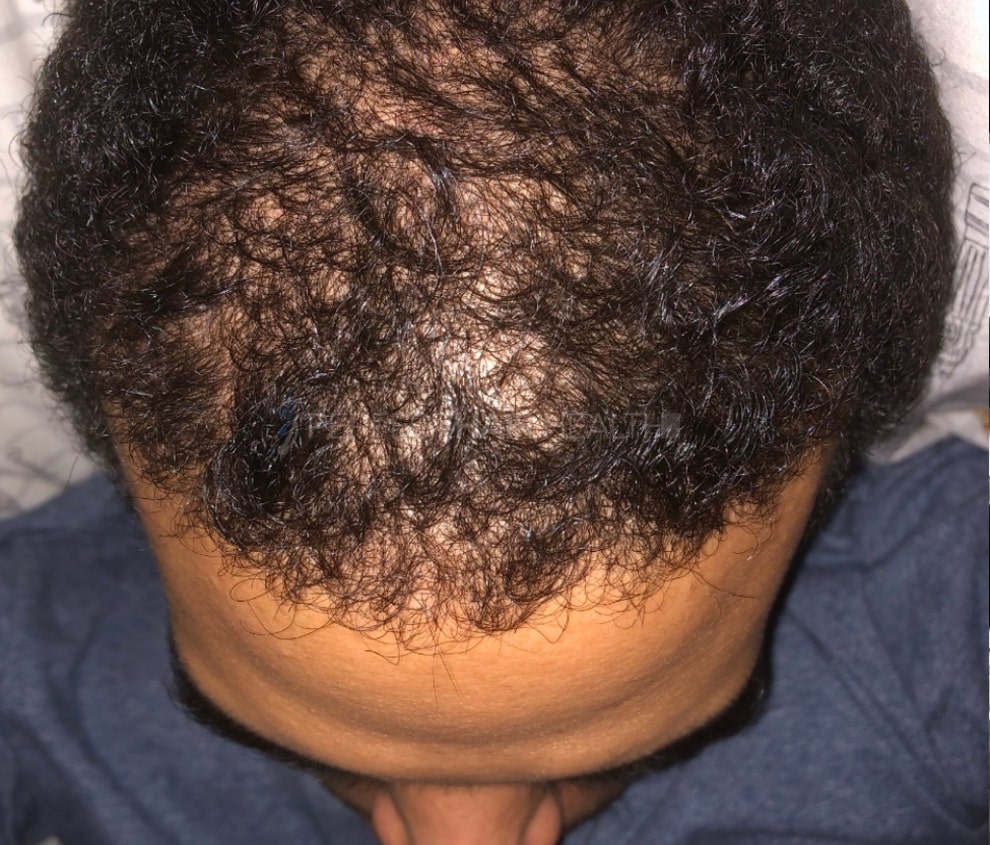
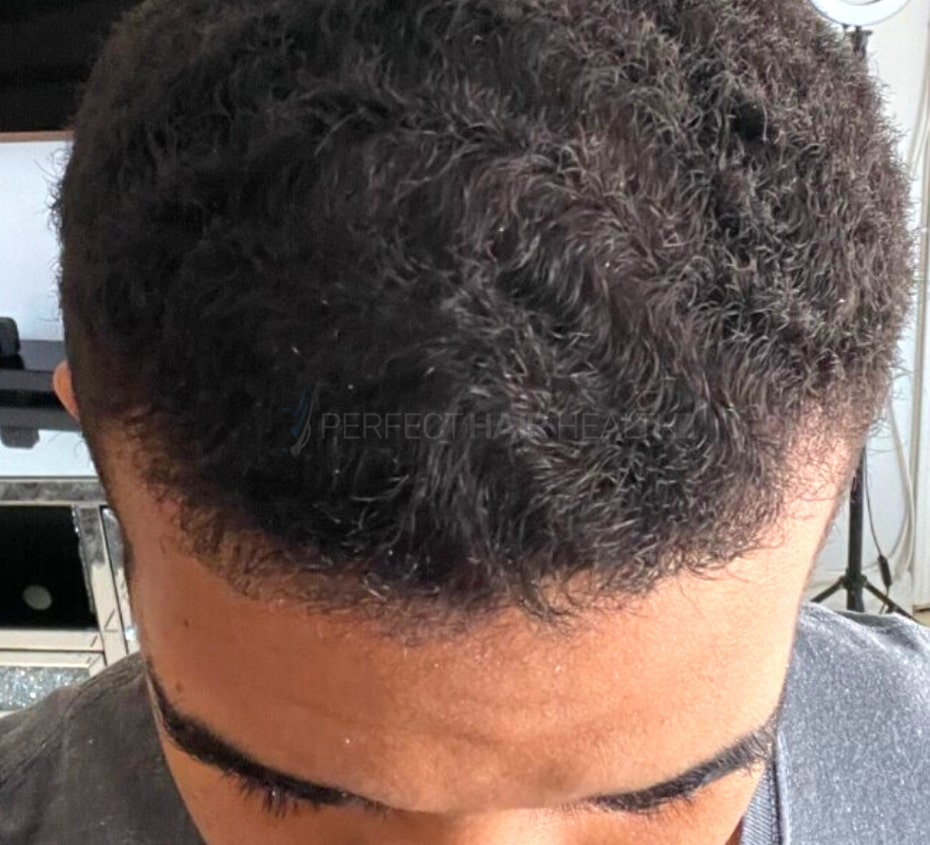 — RDB, 35, New York, U.S.A.
— RDB, 35, New York, U.S.A."... There is a lot improvement that I am seeing and my scalp feel alive nowadays... Thanks everyone. "
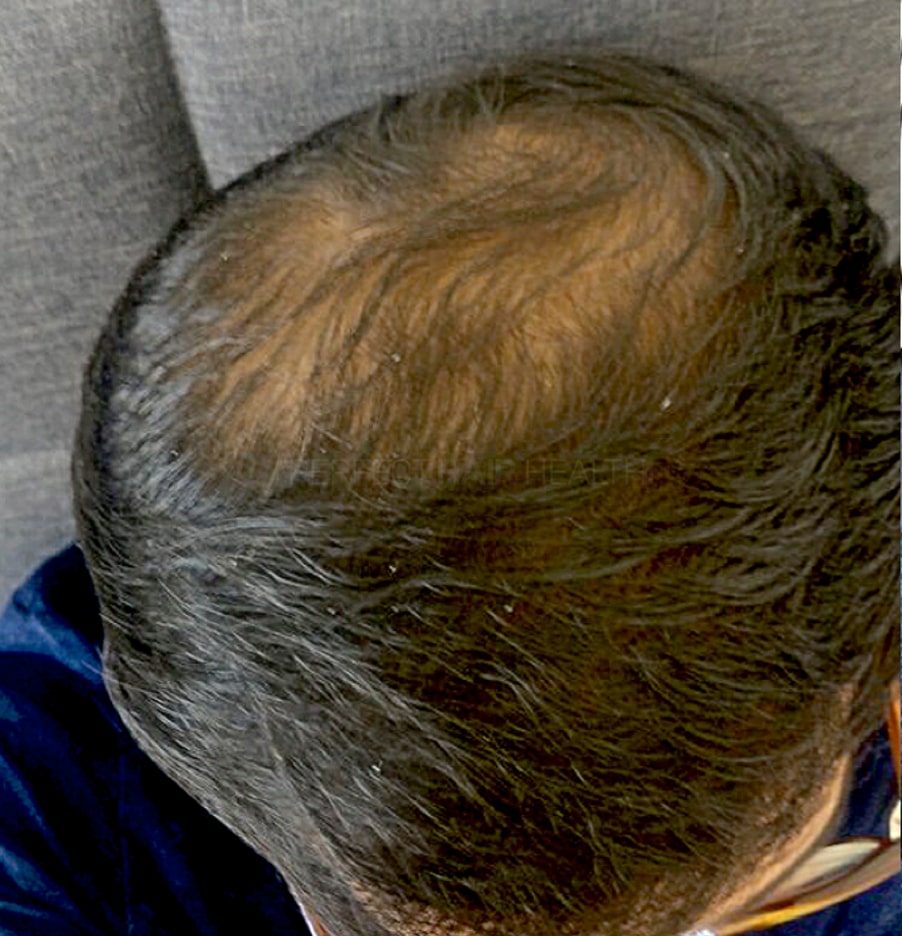
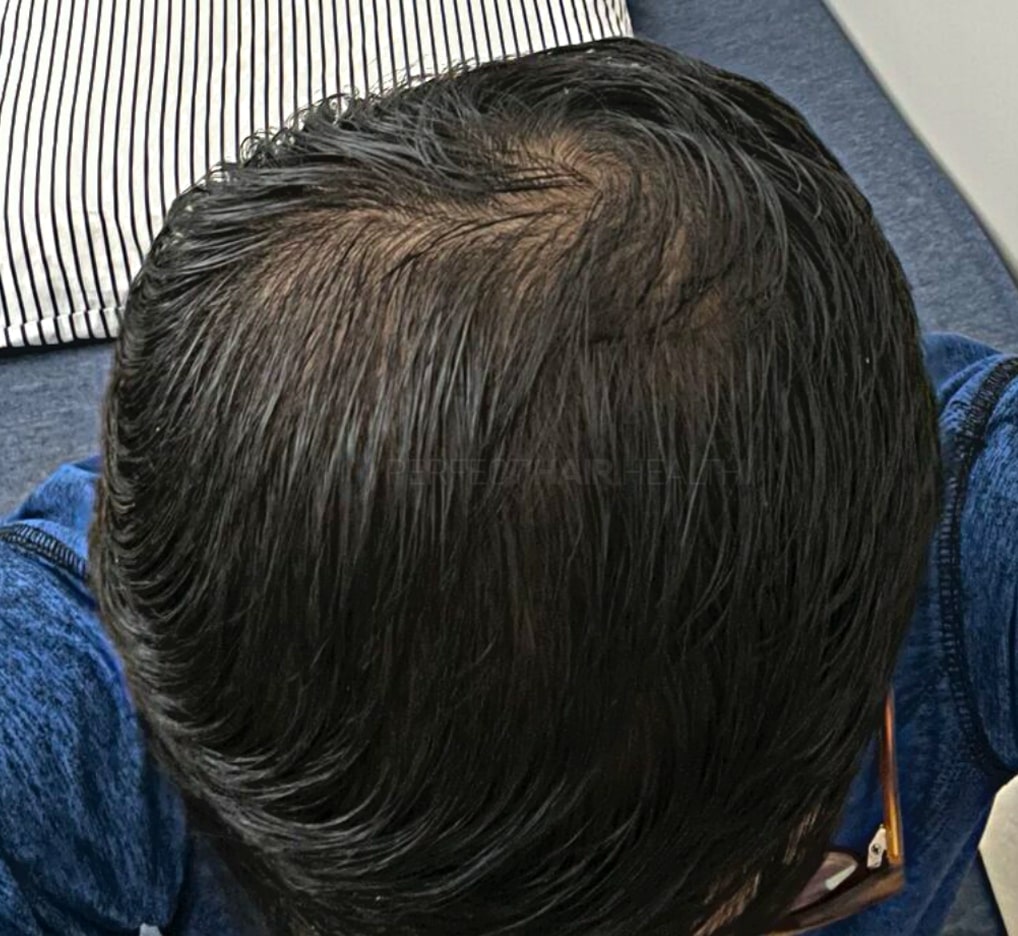 — Aayush, 20’s, Boston, MA
— Aayush, 20’s, Boston, MA"... I can say that my hair volume/thickness is about 30% more than it was when I first started."
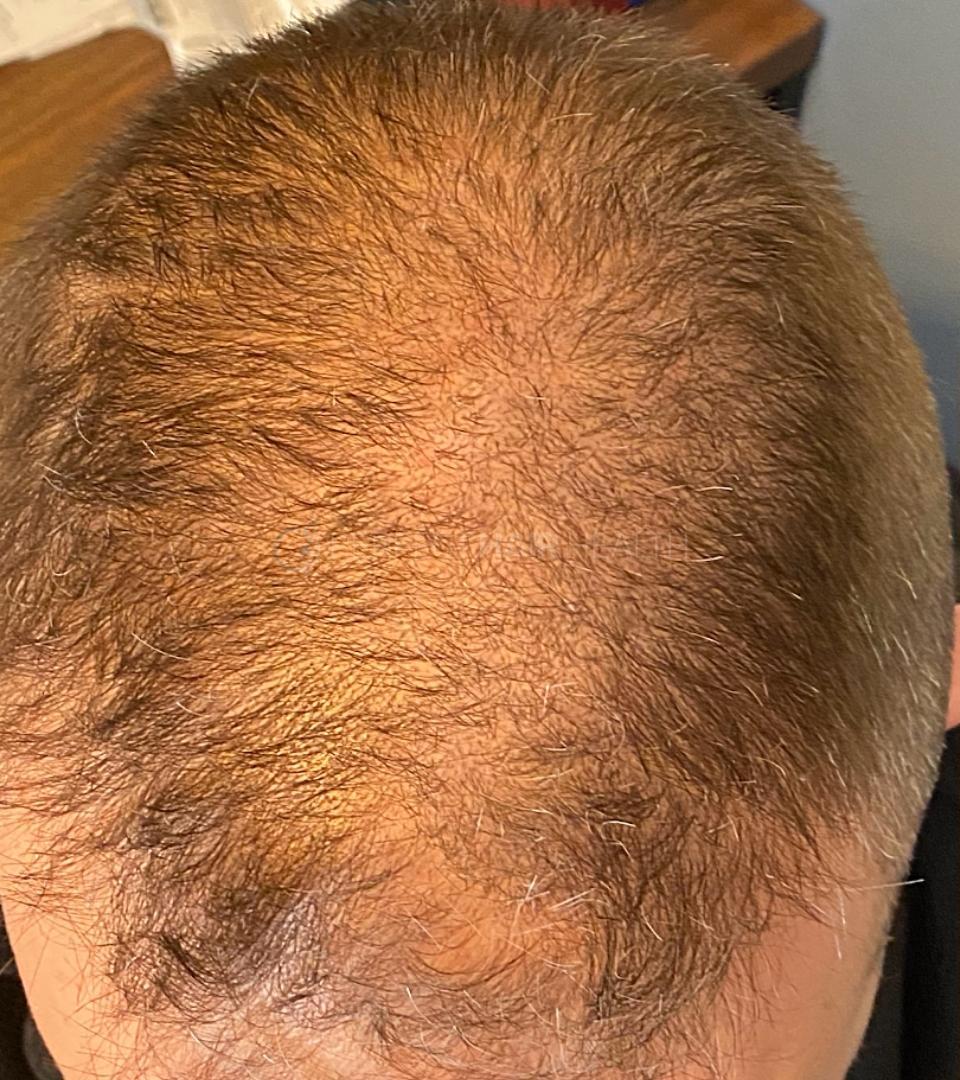
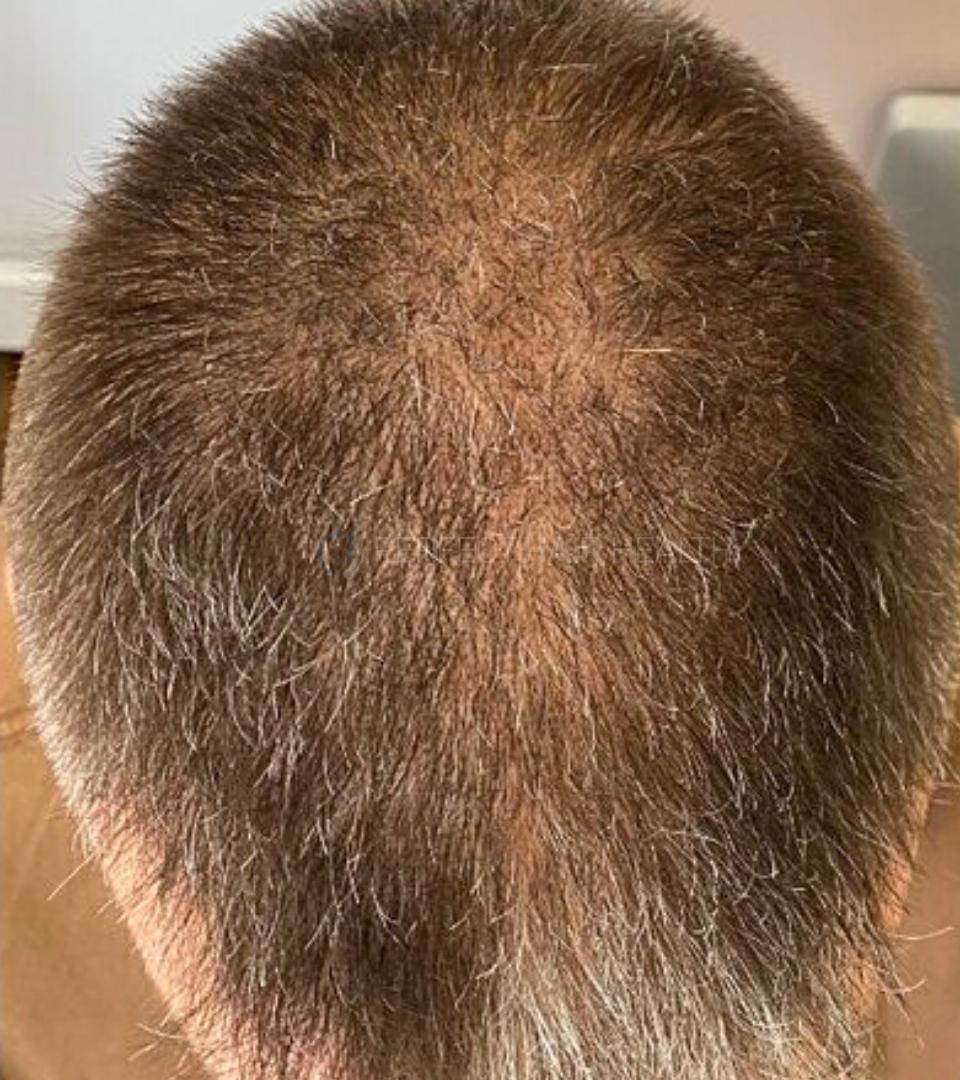 — Douglas, 50’s, Montréal, Canada
— Douglas, 50’s, Montréal, CanadaWant help with your hair regrowth journey?
Get personalized support, product recommendations, video calls, and more from our researchers, trichologists, and PhD's dedicated to getting you the best possible outcomes.
Join Now - Mission Statement